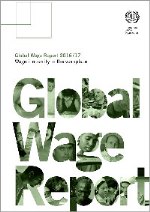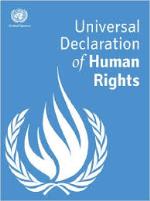Social Watch News
|
Published on Fri, 2016-12-16 00:00
|
Published on Thu, 2016-12-15 15:30
Global real wage growth has decelerated since 2012, falling from 2.5 per cent to 1.7 per cent in 2015, its lowest level in four years, the International Labour Organisation (ILO) has said.
In its latest Global Wage Report 2016/17, the ILO said if China, where wage growth was faster than elsewhere, is not included, real wage growth has fallen from 1.6 per cent in 2012 to 0.9 per cent in 2015.
"The United Nations 2030 Agenda for Sustainable Development identified decent work for all women and men, and lower inequality, as among the key objectives of a new universal policy agenda. The issues of wage growth and wage inequality are central to this agenda," said ILO Director-General Guy Ryder, in a preface to the report.
|
Published on Thu, 2016-12-15 15:28
Trade unions representatives at the United Nations consider it "positive" that "the indicators can still be improved" but warn that in not totally transparent processes, the targets can be distorted in the choice of indicators.
Monitoring of the SDGs is to begin in 2017, and the Inter Agency Expert Group (IAEG-SDG) held its fourth meeting at the United Nations Grounds in Geneva on 17-18 November. The discussion was not conslusive. Trade unions analyse what is at stake.
|
Published on Thu, 2016-12-15 14:46
Last International Human Rights Day, December 10th, marked the 4th anniversary of the launch of the RightingFinance (RF) website.
Human rights is one of the areas of public interest where the disconnect with the representation in financial regulation becomes most evident. The choices on global and domestic financial regulation carry critical consequences for the ability of governments to comply with their human rights obligations. For an extreme and recent illustration of this one needs only examine the impacts of the 2008-09 global financial crisis. It prompted the Office of the High Commissioner for Human Rights to state that “As a result of the crisis and the threat posed to national economies by the potential collapse of systemically important financial institutions, . . . the ability of individuals to exercise their human rights, and that of States to fulfil their obligations to protect those rights, has been diminished.”
|
Published on Sat, 2016-12-10 00:00
Since the of the Third International Conference on Financing for Development held in Addis Ababa, Ethiopia, the UN has continued to address global issues such as external debt sustainability and development, promotion of international cooperation to curb and recover illicit financial flows, raising domestic and foreign public and private investment, reaching commitments to official development assistance, critical analysis on proliferation of public-private partnerships for development, domestic resource mobilisation and tax justice, and sectoral financing (education, health, agriculture, etc...).
|
Published on Fri, 2016-12-09 14:59
The "unprecedented pressure" being placed on international human rights standards risks unravelling the unique set of protections that have been set in place after the end of World War II, the UN High Commissioner for Human Rights has said, in the run-up to Human Rights Day on 10 December.
In a UN news release, the UN human rights chief Mr Zeid Ra'ad Al Hussein announced that on Human Rights Day, the UN Human Rights Office will launch a campaign entitled "Stand up for someone's rights today."
|
Published on Fri, 2016-12-09 12:17
"As feminist, women’s rights and gender equality advocates we reaffirm our vision of a world where aid is no longer necessary. Where unequal power relations and undemocratic distribution of wealth and structures of injustices all forms of violence and war are transformed to create new forms of relations based on equality, dignity, respect and human rights that enhance solidarity, equity, inclusion, non-subordination and justice for all." Read here the statement by the Feminist Constituency at the High Level Meeting on the Global Partnership for Effective Development Cooperation that was held in Nairobi, Kenya, 28th November to 1st December 2016.
|
Published on Fri, 2016-12-09 10:25
Over the past decade, sub-Saharan African countries have been issuing sovereign bonds at an unprecedented rate and many are now facing new repayment difficulties. A recently-released report, Bond to Happen Recurring Debt Crises in Sub-Saharan Africa and the Rise of Sovereign Bond Issuance, explores the economic and financial situation of a selection of African countries, with a focus on the role of sovereign bonds. It finds that although there are substantial opportunities associated with sovereign bond issuance, there are also substantial risks.
The report asks the question: Is there a debt crisis waiting to happen on the subcontinent? And how can we improve our international system for responsible lending and borrowing? As financing for development is central to attaining the Sustainable Development Goals (SDGs), the question of whether the existing frameworks for and practices of contracting debt are likely to be pro-development is of particular concern.
|
|
Published on Fri, 2016-12-09 10:25
|
|
Published on Fri, 2016-12-02 00:00
|
SUSCRIBE TO OUR NEWSLETTER
Submit

|








